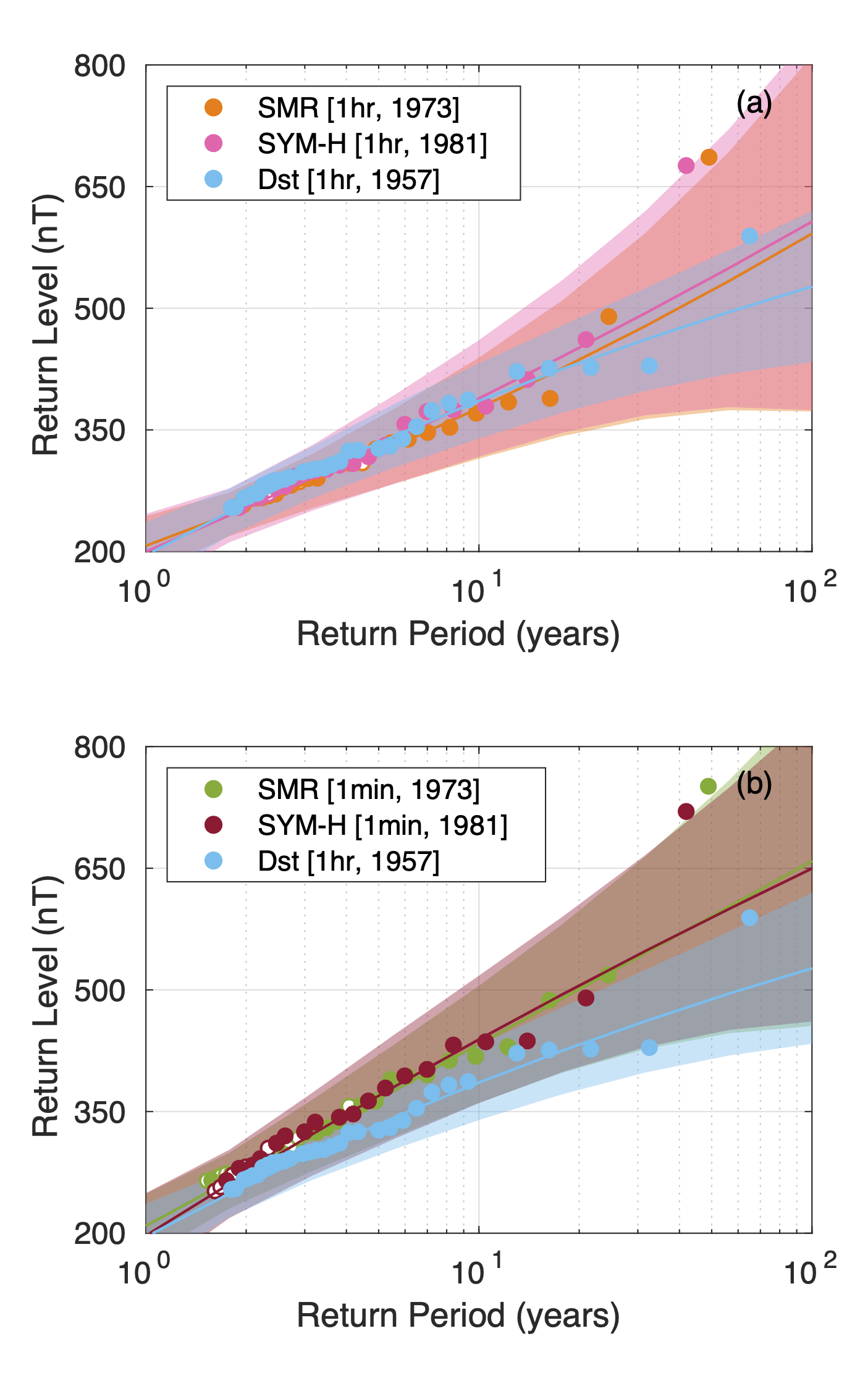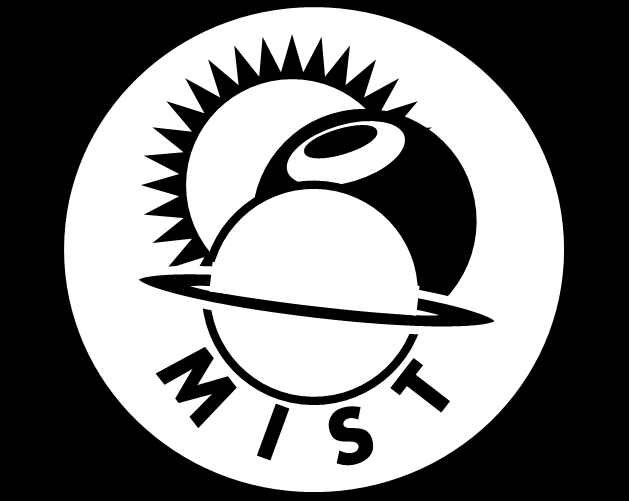MIST
Magnetosphere, Ionosphere and Solar-Terrestrial
Extreme Event Statistics in Dst, SYM-H, and SMR Geomagnetic Indices
Aisling Bergin (University of Warwick)
Extreme space weather events are rare, and quantifying their likelihood relies upon long-term continuous observations. High-quality ground-based magnetometer observations underpin geomagnetic indices that monitor space weather and span multiple solar cycles. The Dst index ring-current monitor, derived from an hourly average over four low-latitude stations, is a benchmark for extreme space weather events, and has been extensively studied statistically. Space weather storms cause magnetic perturbation that can be localized in space and time. Geomagnetic ring current indices are available which use a larger number of magnetometers than Dst: SYM-H (derived from 6 stations) and SuperMAG SMR (derived from up to 120 stations).
In this paper we perform the first extreme value theory (EVT) analysis of SYM-H and SMR. EVT analysis reveals a divergence between the return level found for Dst, and those for SYM-H and SMR, that increases non-linearly with return period. For return periods below 10 years, hourly averaged SYM-H and SMR have return levels similar to Dst, but at return periods of 50 and 100 years, they respectively exceed that of Dst by about 10% and 15% (SYM-H) and about 7% and 12% (SMR). One minute resolution SYM-H and SMR return levels progressively exceed that of Dst; their 5, 10, 50, and 100 year return levels exceed that of Dst by about 10%, 12%, 20% and 25% respectively. Our results indicate that consideration should be given to the differences between the indices if selecting one to use as a benchmark in model validation or resilience planning for the wide range of space weather sensitive systems that underpin our society.

Please see the paper for full details: Bergin, A., Chapman, S. C., Watkins, N. W., Moloney, N. R., & Gjerloev, J. W. (2023). Extreme event statistics in Dst, SYM-H, and SMR geomagnetic indices. Space Weather, 21, e2022SW003304. https://doi.org/10.1029/2022SW003304
